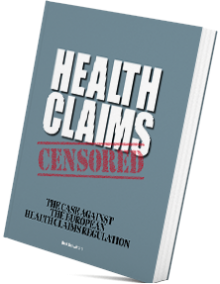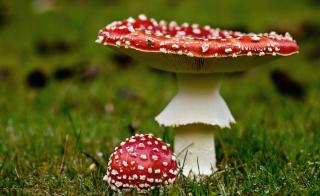It is a category mistake to present, consider, discuss or qualify “botanicals” as a category of medicines. The European Medicinal Products Directive (EMPD), which harmonizes the authorization and marketing of medicines, does not concern “botanicals” or “herbal” substances. Nowhere in the EMPD can a rule or measure be found that regulates “botanical” or “herbal” substances. Under EU law, “botanicals” cannot be classified as medicines.
A “category mistake” is a semantic or ontological error in which things belonging to a particular category are presented as if they belong to a different category, or, alternatively, a property is ascribed to a thing that could not possibly have that property. To show that a category mistake has been committed one must typically show that once the phenomenon in question is properly understood, it becomes clear that the claim being made about it could not possibly be true. [i]
“Botanicals” can be found in European Food Law, where they are correctly classified as “plant or herbal” substances that have physiologically active properties. [ii] In accordance with the Prohibition Proviso principle, their use as foodstuff is permitted unless safety concerns would warrant their definite or provisional prohibition. This principle is the normative paradigm in Union Food Law. [iii] According to the German food-law expert Prof.Dr. Markus Möstl, this means that under European Union law, “botanicals,” be it with full responsibility of the food business operator for the safety of his product, are not subjected to any particular restrictions. “It is not up to the food business operator to make the effort of obtaining an approval to legitimately market his product, but, the other way around, the Commission must take action in case marketability must be restricted.” [iv]
“Botanicals” have become the target of regulators, bureaucrats and special interest groups, because, as their endlessly repeated mantra goes, “under current EU rules, it is possible for Member States to classify a product, on a case-by-case basis, either as food or as medicine depending on its presentation and the claimed effect. In practice, this means that different Member States can classify the same product in different categories: what is treated as a food in one, can be treated as a medicinal product in another as EU law stands.” [v] Even if this were so – which it is not – this is a problem – although highly theoretical – that should be solved by sharpening the applicable legal and case law criteria for medicinal products, so that such mistakes can be prevented.
Would the sharpening of the relevant “medicinal” criteria produce more clarity in the field of “botanicals” ? Absolutely not. The classification of medicinal products cannot concern the classification of “botanicals,” because “botanicals” do not fall within the field of application of the EMPD. Article 2.1 of the EMPD provides: “This Directive shall apply to medicinal products for human use intended to be placed on the market in Member States and either prepared industrially or manufactured by a method involving an industrial process.” So as to distinguish medicines from food products, Article 2.2 provides: “In cases of doubt, where, taking into account all its characteristics, a product may fall within the definition of a ‘medicinal product’ and within the definition of a product covered by other Community legislation the provisions of this Directive shall apply.” The Medicines Directive does not concern substances not yet embodied in a finished product. It concerns finished products intended to be placed on the market.
If “a thing is what it is, and not something else,” then a “botanical” is a foodstuff, the placing on the market of which is regulated under EU Food law per the Prohibition Proviso. A “botanical” is not a medicine and, under EU’s Food Law, it is not up to the food business operator to make the effort of obtaining an approval to legitimately market “botanicals” in or as food products. Their prohibition may take place only ex post their safety assessment. No rule or measure in the EMPD could possibly prohibit of interfere with the marketing of “botanicals” in or as foods.
So, when the EMPD does not concern “botanicals” – as, indeed, it does not –, and when “botanicals “ are already sufficiently regulated as foodstuffs under EU Food Law – as, indeed, they are –, why must we spend our precious time and energy on discussions about the use, safety and quality of “botanicals” in or as foods ?
A grave and blatant category mistake lies at the heart of the “botanicals” discussion. The “Roadmap” that we are forced to follow to permit the European Commission to bury its category mistake under the cloak called “harmonization” is evidently incorrect and misleading.
“Botanicals” do not require “better” regulations. Traditional health claims do.
Bert Schwitters




